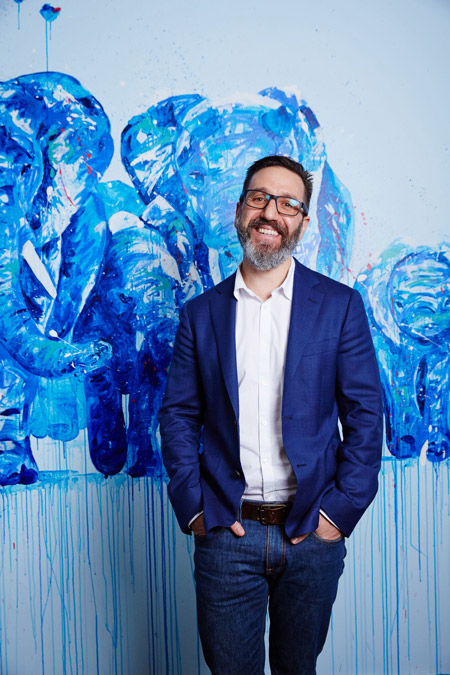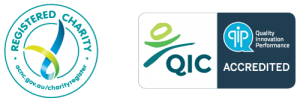In the lead up to the WayAhead Workplaces Annual Members' Forum later this month, we got in touch with our speakers to ask them their thoughts on workplace wellbeing. Here is our conversation with Dr Tim Sharp of the Happiness Institute.
 What is the most rewarding part of your work on workplace wellbeing?
What is the most rewarding part of your work on workplace wellbeing?
For all of my professional life, and even before that to some extent, I’ve been passionate about helping people. I discovered early in my career that I wanted to help as many people as possible; and most recently my focus has been on promoting the principles of Positive Psychology which has meant in addition to wanting to help reduce stress and depression and anxiety, my aim is also to help promote health and wellness and happiness. The reality is that many of us spend a significant proportion of our lives in the workplace; and so, I find that in many ways, working with organisations can have a far greater impact than just working with individuals. It’s fantastically rewarding to see teams and businesses learn how easy it can be, and how beneficial for all involved, applying strategies designed to enhance a positive culture can be.
What does a typical workday look like for you?
I don’t really have a “typical day”! And I’ve actively constructed my working life to be like that. Although I enjoy structure, I also very much enjoy variety. So, my days can be very, very different. The range of activities in which I’m now involved include keynote speaking (at conferences and within organisations), consulting to businesses and leaders, recording podcasts, engaging in media work and writing. My days and weeks can involve any or all of these. I’m also very involved in and give a lot of my time to a youth mental health charity about whose work I’m very passionate (www.batyr.com.au).
What are some of the challenges of your work?
To be perfectly honest, I don’t have that many challenges these days; because I’m lucky enough to have worked myself into a position where I really only do work I enjoy, find interesting and/or am passionate about. That being said, when it comes to the work I do with organisations around building a positive culture or boosting workplace wellness, one of the challenges is to get them to see that what they want to achieve requires more than an “event” (e.g. a seminar or workshop); instead, to achieve real and meaningful results, organisations really need to commit to the principles, at all levels, over the long term.
What has been your best experience working on employee wellbeing initiatives and research?
I’ve had an extremely satisfying career, initially as a clinical psychologist and more recently as a positive psychologist, coach and consultant. I’ve been lucky enough to work with some great organisations, large and small, and some inspirational people. But if pushed, the best experience has probably been the last few years I’ve spend as “Chief Happiness Officer” at www.batyr.com.au. This has allowed me to become fully integrated into an organisation, to a level most consultants rarely, if ever achieve; and accordingly to help create a culture like nothing I’ve seen anywhere else (or even read about). The principles of positivity, health and wellbeing, are intimately woven in to everything that happens and every decision that’s made. As a result, it’s a pleasure to be a part of their team and to watch them do the amazing work they do smashing the stigma associated with mental ill-health.
What are the most exciting improvements in mental health in the workplace have you seen since you started working in the sector?
Probably just the extent to which it’s now accepted as an important part of doing business, including attracting and retaining the best staff and getting the most out of them. When I started, it was much harder to convince leaders and organisations to take it seriously and to fully commit to wellness programs. Now, thankfully and impressively, it’s almost becoming the norm.
What can workplaces do to better support their employees’ wellbeing?
It’s hard to answer this because the extent to which workplaces are currently supporting employees’ wellbeing varies tremendously. Some are already doing a great job, and all I’d say to them is “keep up the good work”! Others, however, still have a way to go and I’d suggest they look at the research and look to other workplaces to understand the many benefits that can come from getting this right.
You can hear more from Dr Sharp at the WayAhead Annual Workplaces Members' Forum on Friday 22nd of July.
Non-members are welcome to attend; please email workplaces@wayahead.org.au to register your interest.
Read about Megan Kingham, Georgie Drury, Katherine Winlaw and Emily Coppla who will also be speaking on the day.


